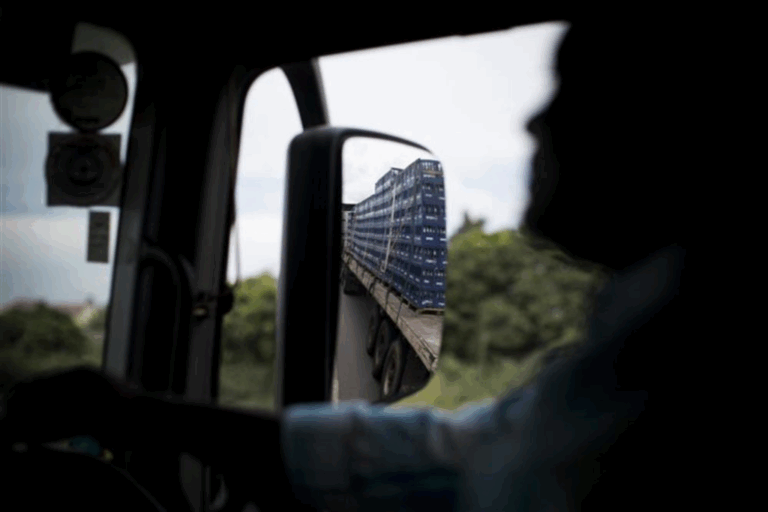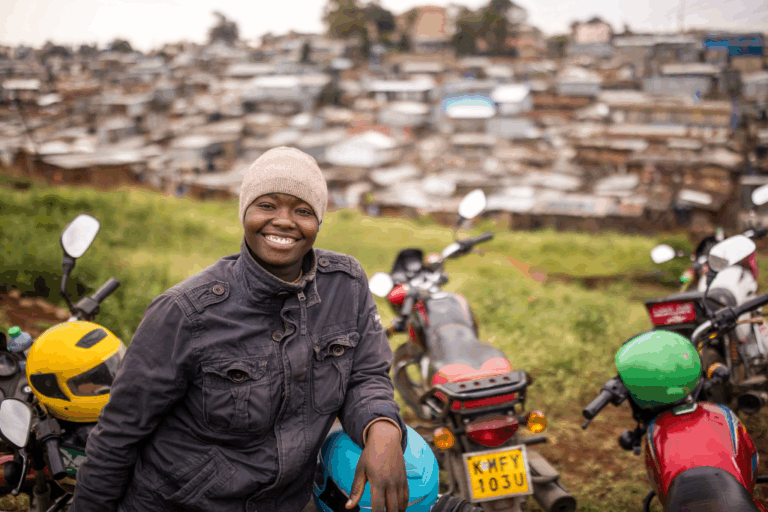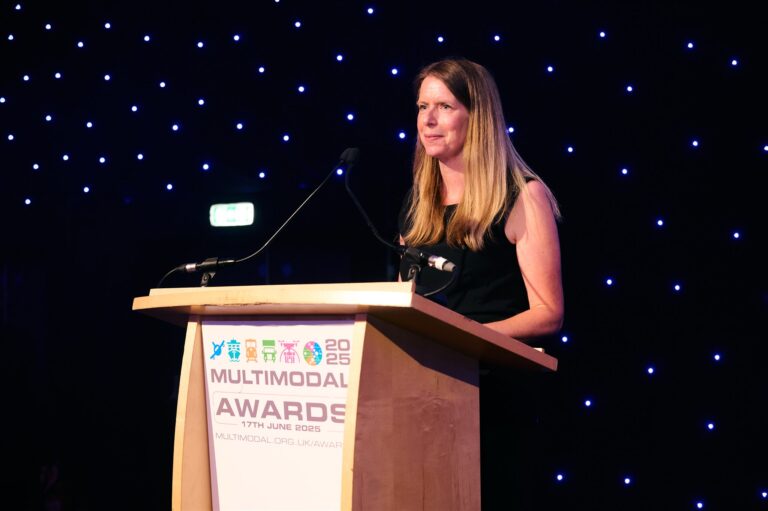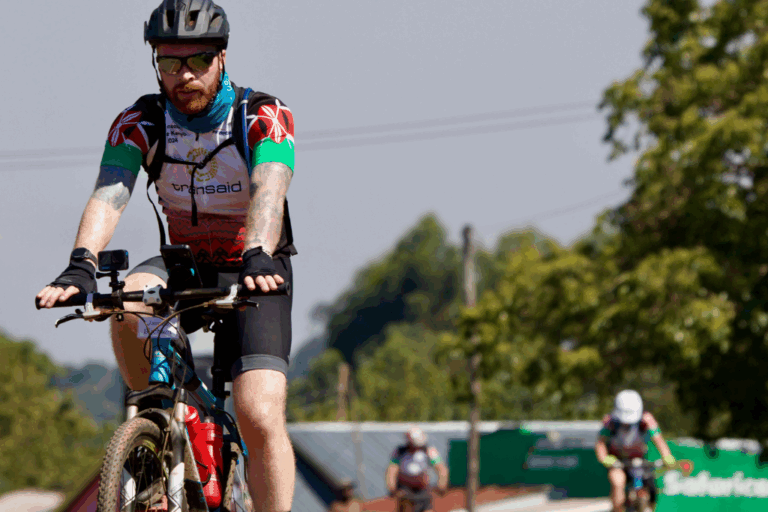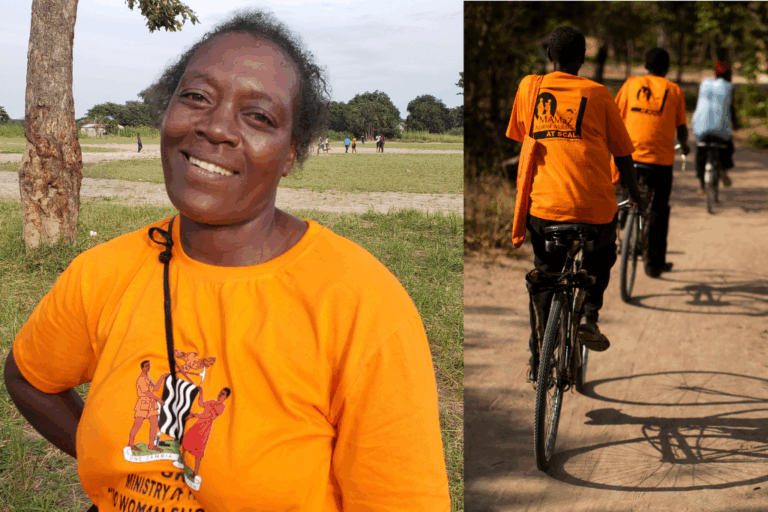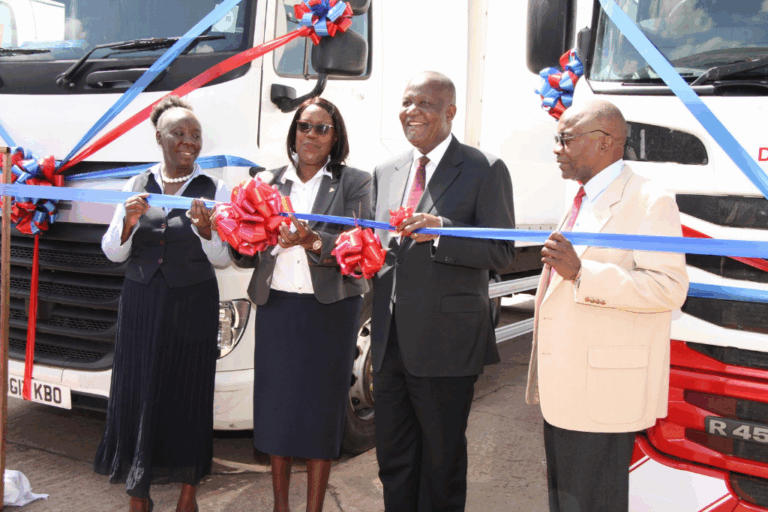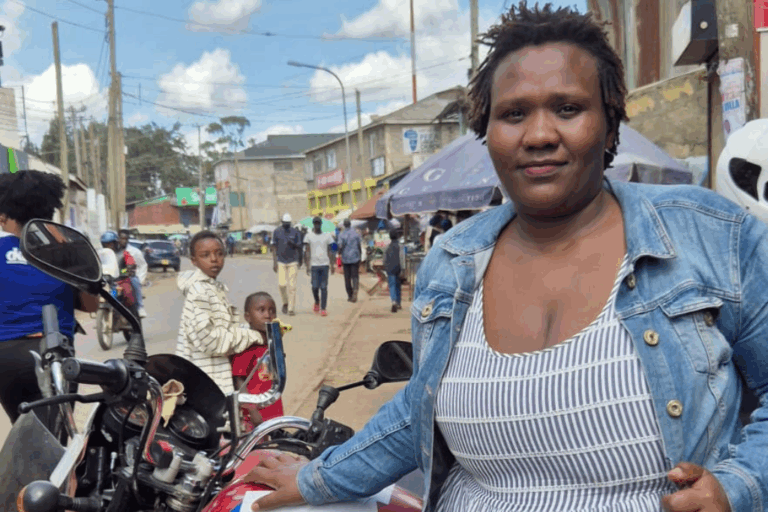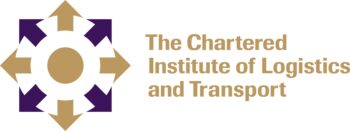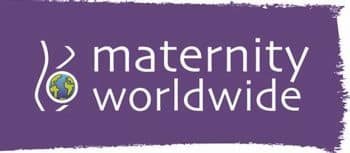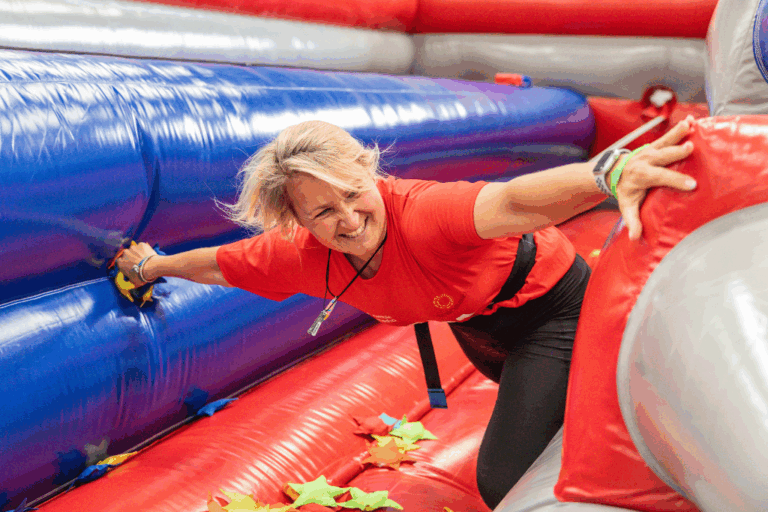
News
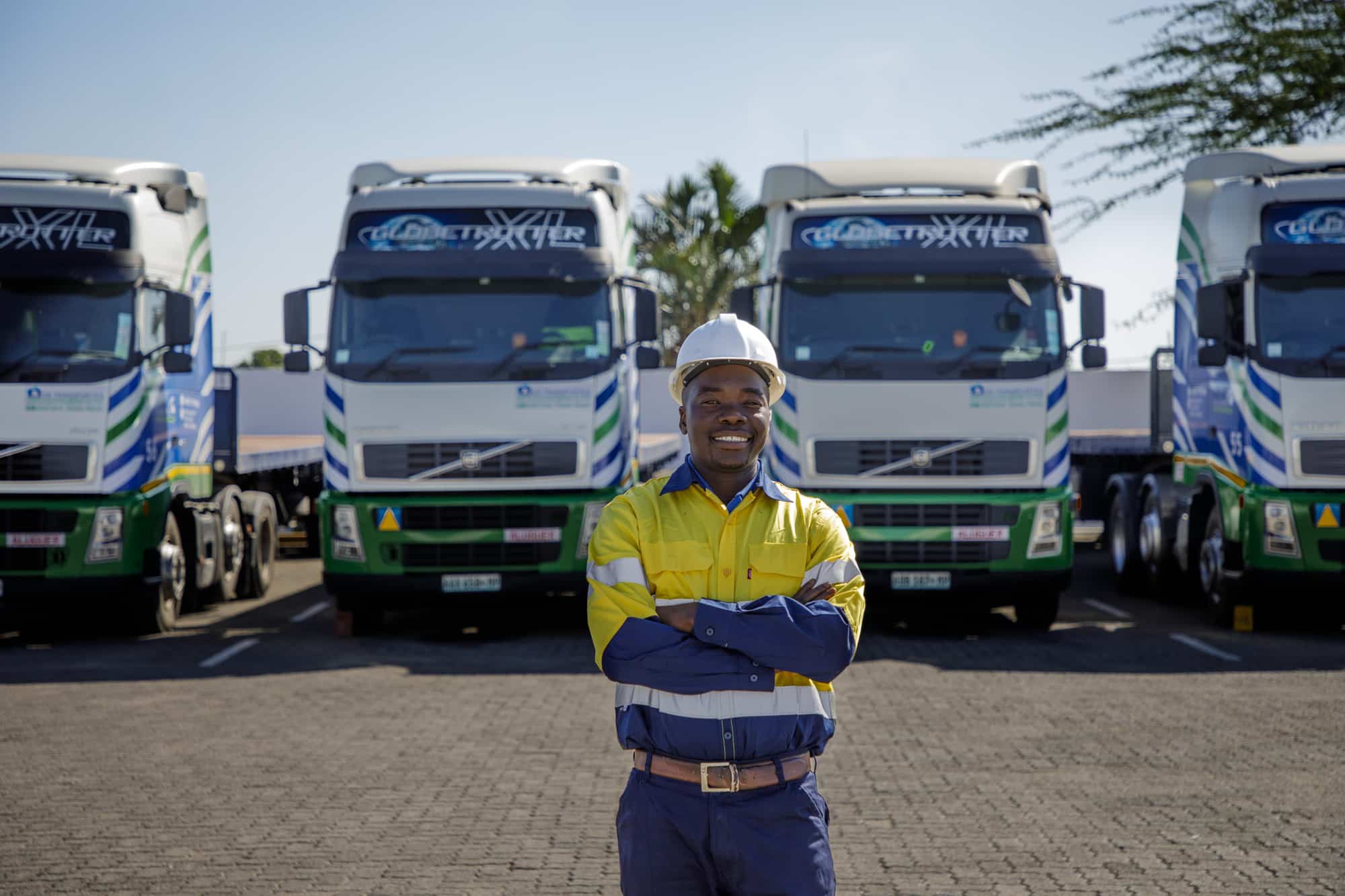
Abdullahi’s story: becoming an ETS driver after a tragic loss
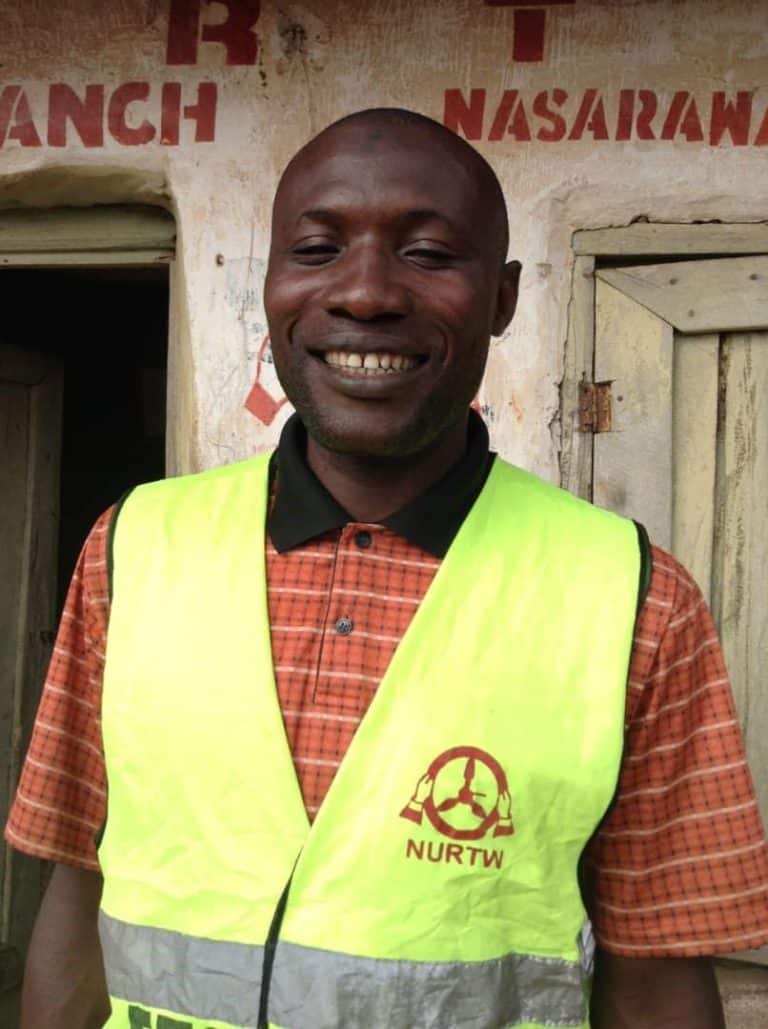
In Nasarawa State, located in north central Nigeria, rural communities are often far from primary health care services, and transport is prohibitively expensive for the majority of people, particularly during medical emergencies. Many women are therefore unable to seek assistance when giving birth, and those that suffer life-threatening complications are often too far from help to be saved.
In 2016, Transaid funded a pilot project with a view to addressing the high burden of preventable maternal deaths in Nasarawa. Working alongside the National Union of Road Transport Workers (NURTW) and the Nasarawa State government, the pilot aimed to reduce cost and increase the availability of safe and reliable transport for pregnant women in need of medical assistance. Based on the pilot’s success, the Puma Energy Foundation agreed to provide funding for an expansion of this initiative, the Emergency Transport Scheme (ETS), in the state.
Abdullahi’s story
24 year old Abdullahi lives in Gidan Hausa 2 Ward in the Local Government Area of Obi. He comes from a family of four brothers and a sister. After his mother passed away many years ago, his sister became the maternal figure in their household. Abdullahi and his siblings would turn to her first for guidance. But tragically, Abdullahi’s sister died during childbirth.
“ETS drivers are responding quickly to such cases, if it had been that ETS was on ground [when my sister was in labour] my sister would have still been alive….I will not be happy losing another woman even if she is not my sister”.
Losing a close family member whose death was likely preventable spurred Abdullahi on to become an official ETS volunteer driver. The Emergency Transport Scheme engages existing taxi drivers from the NURTW to transport women experiencing a maternal complication or in labour to a health facility. The drivers volunteer to be part of scheme and the service they provide is free. Abdullahi is proud to be an ETS driver and believes he has an opportunity to make a positive impact in his community.
One evening in October 2018, a young woman came running to Abdullahi’s house, shouting his name and saying that something was happening in the neighbourhood. He heard that a man had started to fight with his wife, who was pregnant at the time. Upon reaching the scene, Abdullahi found the woman unconscious, lying face down on the ground and bleeding. A health professional happened to be at the scene and advised Abdullahi to quickly take the woman, Hauwa Tanimu, to a health facility so that she could be examined properly.
Abdullahi remembered his ETS training on how to lift an unconscious pregnant woman using a strong sheet or mat. Drawing on this expertise, Abdullahi called for the help of three bystanders to assist him in lifting the woman into his taxi using the technique he had been taught. Hauwa was then taken to the health facility, a journey which took approximately 15 minutes, accompanied by her mother-in-law and her younger sister.
Upon their arrival, Abdullahi, who was already familiar with the staff at the health facility as a regular ETS driver, rushed inside to get help. The health workers promptly came out to his vehicle with a stretcher and safely took Hauwa out of the car and into the facility. She was admitted, attended to immediately and the family were relieved to hear that she would likely make a full recovery.
Later that evening Hauwa regained consciousness. Abdullahi, who was still waiting at the facility, was assured by a doctor that there would be no further complications, and that he should take the opportunity to go back home. However, Abdullahi returned to the facility very early the next day to check on Hauwa. The doctor told him that despite the trauma she had suffered, the woman and her unborn child were healthy.
Abdullahi is just one of 120 taxi drivers who volunteer their time for the women in their community.
ETS is only made possible by the generous support from the Puma Energy Foundation and the commitment of the NURTW and their drivers in Nasarawa State. To date, over 1,100 women like Hauwa have been looked after by an ETS driver and taken to a health facility.
Recent Posts


